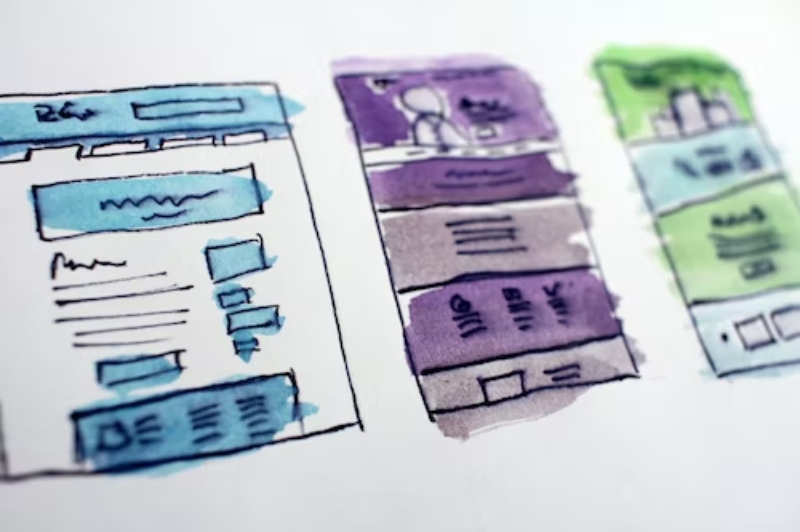Disco Demo - What it is and will it work for you?
The busy prospect. The confusing prospect. The prospect who hates discovery. The struggle is real but unnecessary.
In an ideal world, and with your Ideal Customer Persona, you'd have a wonderful discovery call, and follow that up with a super sharp, fully custom demo that helps them see how much value they'd derive from your solution. In the world you and I live in, however, that is rare.
For the most part, it has to do with the quality of the discovery. And no, I'm not saying it's the pre-sales team's fault. Let's assume for a moment that you've put in the work: you have the most experienced, most tuned-in pre-sales folks on the planet; backed by an award-winning sales process that takes into account all the feedback from your sales engineers, reps, operations and product development teams; and you have a superb lead generation framework.
Okay. So what goes wrong?
Customers don't have time for discovery
We know this. We try to fight it, we try to find ways around it, and we try to entice prospects to spend time in discovery. While most prospects and customers appreciate the value that discovery brings to the sales process, they don't appreciate the time they have to spend doing it. It's like a writer friend once said, "we all love having finished writing… but few of us love the act of writing itself!"
They find the discovery questions too esoteric
This is especially true for those who aren't quite sure what they're looking for. Say you're a prospect who really needs a workflow solution with a strong approval mechanism for your AP processes. But, what you're looking for is a 'productivity solution' that helps your team 'communicate better and get payments out faster. When a workflow solution provider starts asking you detailed questions about your SOP for approvals and whether there exist any ground rules that could allow for automated approvals, the question itself sounds like gobbledygook.
Prospects have to be led to solutions. By showing them your approvals workflow, however, you set the context for your questions. You help the prospect imagine the possibilities with you, and hence, answer your questions with much more nuance.
They walk into discovery meetings expecting to see a demo
Oftentimes, the call to action your prospects respond to is the "Schedule a Demo" button on your website. Instead of a demo though, they find themselves in an interview about their business. The prospect then patiently goes through all the discovery questions with your team, and once done, they're told that the demo will happen at a later date. Hmph!
To me, that's a missed opportunity. The prospect was excited to see something. Instead, they were interrogated about their business, told to wait for a week (or two or three) and asked to carve out time from their busy schedule (again!) to see the demo they thought they were here to see in the first place! That's a bad experience.
Enter, the disco demo
Separating discovery and demo works, especially when you're having trouble qualifying your leads. However, if you don't have a lot of leads, there's no need to add more friction to sales this way. The prospect needs to feel like they got some value from the time they spent with your team, and often, that's not the sense they leave when it's just a discovery call.
The disco demo creates a great middle ground here. Think of it as a teaser demo - you're just whetting the prospects' appetite, and helping them with more context behind the questions you're asking. Most people are unable to get into the right details your team needs because they can't quite picture the workflow or solution your product delivers. By giving them a peek into what the product does, you bring them into the solution, right from discovery onwards.
Now, the disco demo isn't 15 minutes of discovery and then 15 minutes of the demo. What has worked for my team is to lead with a demo of functionality that my research says this prospect is interested in, and then go into questions that help refine our understanding and gain valuable insight into their pain points.
This way, as we work our way through discovery, we also end up showing them standard OOB functionality that is relevant to them, with the disclaimer that the intel we're gathering in this meeting is going to feed into the custom demo they'll attend shortly after.
Now, having seen a little, the prospect is much more likely to wait for our custom demo. Also, the SEs now have much more nuanced information to work with when creating the custom demo.
Less is more
Both in terms of what you show in the demo, and how long the prospect waits for it. In today's SaaS landscape, it shouldn't take us a week to get back to the prospect with a custom demo.
Oftentimes, the reason that that happens is that our teams get caught up in showing the prospect absolutely everything. So, the prospect waits for a couple of weeks to watch a 40-minute demo, when they really only needed to see what your team showed them in the first 10 minutes or so.
Possibly the biggest benefit of the disco demo is that the prospect now understands your product enough to explore your demo library (on your website, or via secure links) on their own. Your team gets to focus on the 2-3 main pain points they've identified, and if they're able to come back to the prospect in a couple of days with a custom demo that focuses just on those, that speaks volumes! It shows the prospect that your product is suitable and ready, and that you are a responsive, agile business.
Conclusion
A disco demo doesn't need to be your go-to with every prospect, of course. But it's a good fallback option to have when your reps can sense that the prospect would respond better to it. Your reps already do demos (often highly custom ones!), so a basic demo doesn't stretch their capabilities. It is, essentially, an ROI booster, without additional investment.
My recommendation is to pilot it with a couple of high-performing sales reps whose product knowledge is strong. Then, have them model it for the rest. As always, a more hands-on approach from you is never a bad thing when something is new. In all the organizations I've worked in, disco demos were a resounding success, but each business and product came with its own nuances - what do we show, how much detail, what to tease with and what to divulge, and so on.
Getting SEs involved to help with scripts and cues is always a good thing at this stage. My own team leverages SmartCue to create libraries of disco demos that are aimed at various buyer personas, domains and enterprise sizes. It helps standardize without having my people sound robotic, and creating demos and variations is a breeze. End of (shameless!) plug. You do you though. That's the beauty of working in the SaaS universe - we know that no matter what the ask, someone out there has a solution that is just right for what we need.
And this time, when you go solution shopping, ask for a disco demo! :)


Comments
Your comment has been submitted successfully!